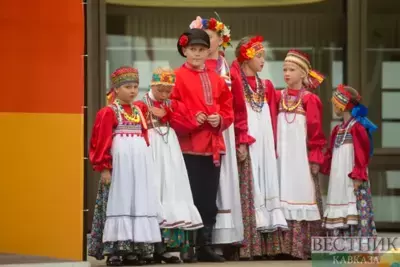Ethnic identity, being an integral part of the social identity of an individual, plays an integral role in formation of the migrants national enclaves in their host countries, which, in turn, affect the internal political processes in the receiving states, the analyst of news agency Vestnik Kavkaza, Ekaterina Vinnik told in the National Question program on Vesti.FM
National Question is a weekly program on Vesti.FM, during which various aspects of national relations, primarily in Russia, are discussed.
The expert noted that today the most striking example of such influence is the United States, where the number of immigrated Mexicans and Latin Americans exceeds the total number of migrants from all European countries. "According to the government estimations, in two generations 25% of the country's population will be of Latin American origin. In addition, Latin American culture, already in the early 90s of the 20th century, became an integral part of the US population’s life. Clothing, music, architecture, literature, cuisine - literally every sphere of life of Americans were influenced by Mexicans and Latinos. That is, this group of migrants not only managed to preserve their ethnicity but also instilled their traditions and culture in the population of the country where they found shelter," she noted.
"If we talk about Europe, an obvious example is Germany, where the vast Turkish community influences not only culture but also the country's policy. Already in the 1970s, Turks began to actively participate in the political life of the country, creating associations and federations based on the Turkish political tradition. And today in Germany, among Turkish migrants, support for Turkish President Recep Tayyip Erdogan and his Justice and Development Party is even higher than in Turkey itself,” the analyst Vestink Kavkaza said.
Speaking of Russia, Ekaterina Vinnik noted that the country's ethnic diversity is largely due to a significant number of migrants from the South Caucasus and Central Asia, which is the basis of multiculturalism. "This, in turn, strengthens interethnic and interfaith relations in the Russian Federation. In this case, the ethnic identity of migrants from other countries living in Russia makes it possible to form a single Eurasian space as opposed to ‘atlantism’ and ‘Europeanism’ in the world politics,” she said.
“Thus, it is obvious that the ethnicity of migrants not only does not weaken with moving to another country but has a significant impact on the internal and foreign political processes of the receiving state,” Ekaterina Vinnik concluded.
















